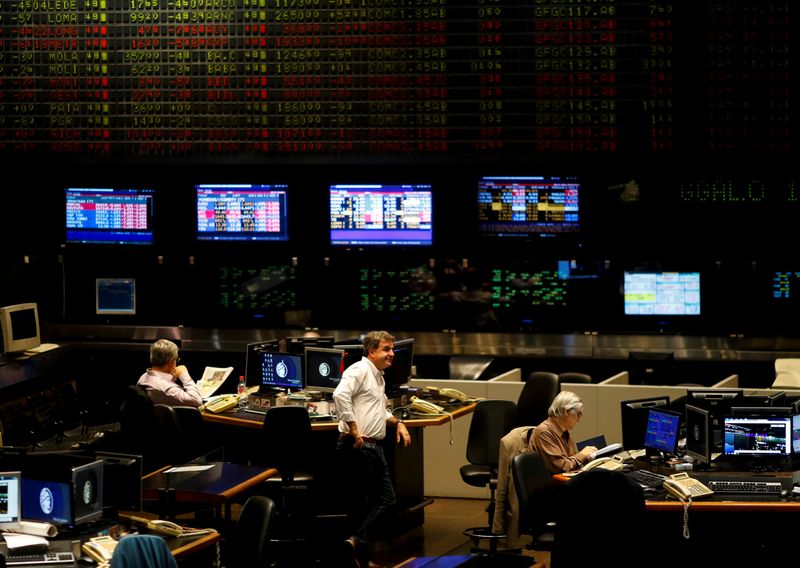
By Rodrigo Campos
NEW YORK (Reuters) – Latin American stocks and bonds could be unlikely winners as the Trump administration’s trade war so far mostly spared the region, while it triggered a market rout on Wall Street that has sent investors on a hunt for non-U.S. assets.
The Nasdaq stock index opened Friday more than 20% below its December record high and Wall Street’s “fear gauge” hit an eight-month high. The dollar touched a six-month low this week.
Meanwhile, the outperformance of some corners of emerging-market equities and currencies, and the resilience of bonds, have not gone unnoticed.
Latin America was mostly spared the imposition of additional tariffs in U.S. president Donald Trump’s announcement this week that upended decades of trade policy, partly because most of the region has a trade deficit with the world’s largest economy.
Despite a massive Friday selloff, the MSCI Latam stocks gauge is beating the S&P 500 by more than 20 percentage points so far in 2025.
The recent returns and a rethinking of global trade could bring new types of investors to Latin American assets, according to Kathryn Exum, co-head of sovereign research at Gramercy.
“Stepping back, we’re obviously in a new paradigm for trade and a reorganization of global trade. Assuming that you end up with more regionalized blocks of trade, Latin America would be a winner in that regard,” she said.
“Perhaps it starts to increase flows,” she added. “Whether it’s FDI (foreign direct investment) flows or portfolio flows will depend on the country at hand, and whether we’re talking about short-term or over the medium term.”
Evidence of a shift may be found in Brazil and Mexico, the region’s largest economies by far. Stock markets in both countries have risen this year, and their currencies are up against the dollar.
Economists said Brazil is better placed than most countries to deal with tariffs, while Mexico’s preferred treatment from a U.S. trade standpoint is expected to continue.
A shift toward Latam follows months of volatility on Wall Street as the prevailing market view of U.S. assets as the only destination was under review, and investors realigned growth expectations in the U.S. and globally.
“Emerging Market assets in general are outperforming during this period of volatility, and we attribute this to a mixture of improving fundamentals, favorable technical factors, and attractive relative valuations,” said Shamaila Khan, head of fixed income for emerging markets and Asia Pacific at UBS.